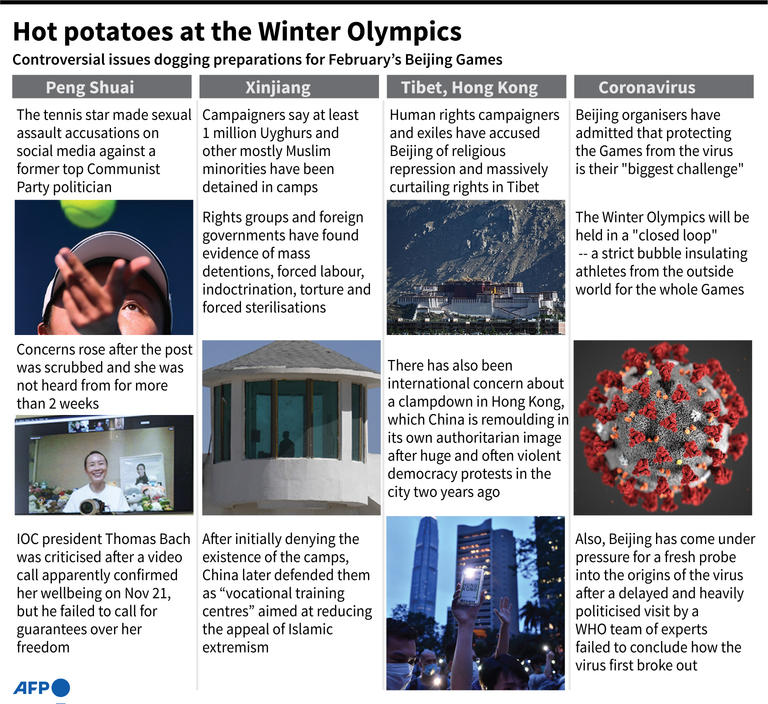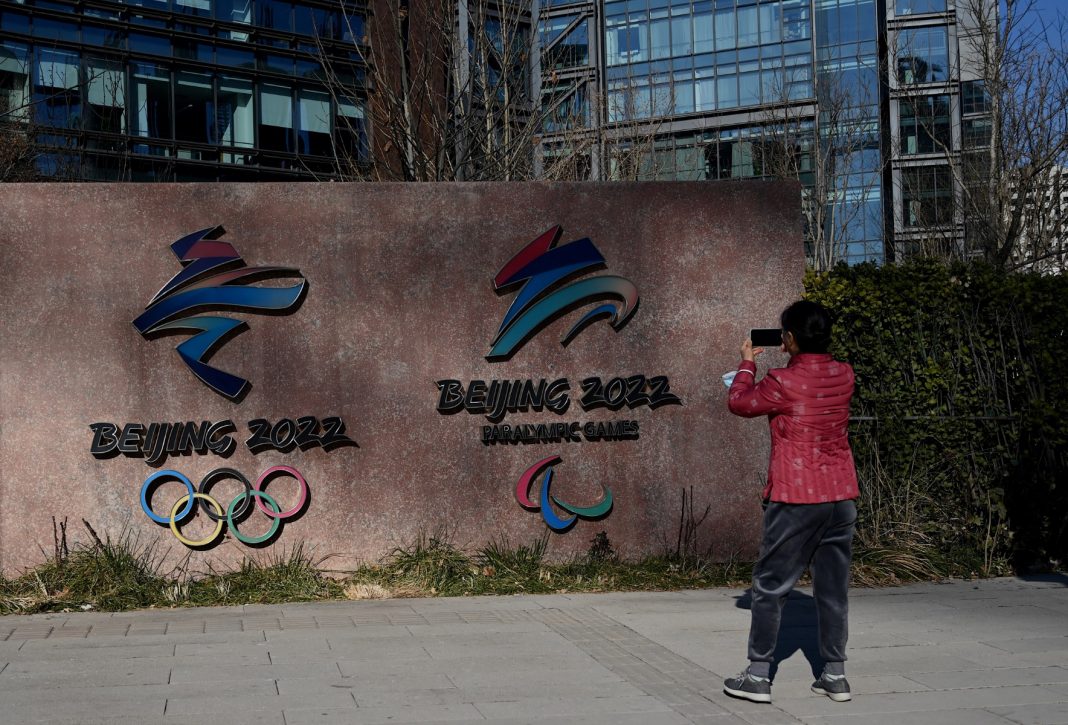China warned Western nations on Thursday that they would “pay the price” for a diplomatic boycott of the 2022 Beijing Winter Olympics as a French minister said they would not be joining the US-backed effort.
Washington unveiled its decision not to send a diplomatic delegation earlier in the week, saying it was prompted by widespread rights abuses by China and what it sees as a “genocide” against the Muslim Uyghur minority in Xinjiang.
Australia, Britain and Canada followed suit in a flurry of diplomatic bonhomie on Wednesday.
The boycott stopped short of not sending athletes to the February Games but nonetheless infuriated Beijing, which hinted at retaliation on Thursday.

“The US, Australia, Britain and Canada’s use of the Olympic platform for political manipulation is unpopular and self-isolating, and they will inevitably pay the price for their wrongdoing,” foreign ministry spokesman Wang Wenbin told reporters.
Soon afterwards Beijing received welcome news from Paris, as Education and Sports Minister Jean-Michel Blanquer said France will not join the boycott.
“We need to be careful about the link between sports and politics,” Blanquer said during an interview with RMC radio and BFM television, adding France would carry on condemning human rights violations in China.
“Sports is a world apart that needs to be protected from political interference. If not, things can get out of control and it could end up killing all of the competitions,” he said.
Blanquer will not travel to the Chinese capital, he said, but junior sports minister Roxana Maracineanu will represent the French government.
– ‘A crucial step’ –
Advocacy groups have backed the US-led boycott effort, with Human Rights Watch’s China director Sophie Richardson calling it a “crucial step toward challenging the Chinese government’s crimes against humanity targeting Uyghurs and other Turkic communities”.
Campaigners say that at least one million Uyghurs and other Turkic-speaking, mostly Muslim minorities have been incarcerated in “re-education camps” in Xinjiang, where China is also accused of forcibly sterilising women and imposing forced labour.
Beijing has defended the camps as vocational training centres aimed at reducing the appeal of Islamic extremism.
International Olympic Committee president Thomas Bach said Wednesday that he was staying politically neutral on the matter, while insisting the important point was “the participation of the athletes in the Olympic Games”.
– Relations in freefall –
All four of the boycotting Western countries have seen relations with Beijing cool dramatically in recent years.
Britain has also criticised China for its crackdown in Hong Kong.
It angered Beijing last year by blocking Chinese tech giant Huawei’s involvement in its 5G broadband rollout, after Washington raised spying concerns.
Canada’s relations with China meanwhile hit a low over the December 2018 arrest in Vancouver on a US warrant of Huawei executive Meng Wanzhou, and Beijing’s detention of two Canadian nationals in response.
All three were released and repatriated in September.
Canberra’s ties with Beijing have been in freefall in recent years, with China introducing a raft of punitive sanctions on Australian goods.
China has been angered at Australia’s willingness to legislate against overseas influence operations, its barring of Huawei from 5G contracts, and its call for an independent investigation into the origins of the coronavirus pandemic.
Australia’s recent move to equip its navy with nuclear-powered submarines under a new defence pact with Britain and the United States — widely seen as an attempt to counter Chinese influence in the Pacific region — further enraged Beijing.
– ‘Extremely concerned’ –
Prime Minister Boris Johnson announced Britain’s boycott in parliament on Wednesday but joined the other three nations in saying athletes should still attend.
“I do not think that sporting boycotts are sensible — that remains the policy of the government,” he added.
In Ottawa, Prime Minister Justin Trudeau announced Canadian officials too would skip the Games, saying his government is “extremely concerned by the repeated human rights violations by the Chinese government”.
Australia’s leader Scott Morrison made a similar announcement earlier in the day.
Other countries are weighing their own moves.
The Kremlin, however, criticised the US move, saying the 2022 games should be “free of politics”.
Russian President Vladimir Putin has already accepted an invitation by Chinese leader Xi Jinping to attend.
© Agence France-Presse

